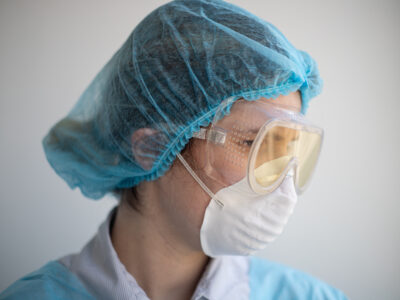Addyi (Flibanserin) is a medication used to treat female sexual dysfunction. It was approved by the US Food and Drug Administration (FDA) in 2015, making it the first FDA-approved drug for treating premenopausal women with FSD.
Addyi works by targeting certain brain chemicals involved in sexual arousal and desire. It increases levels of dopamine and norepinephrine, which are neurotransmitters associated with pleasure, while also decreasing serotonin levels, which can interfere with sexual excitement. This helps to improve overall feelings of sexual desire.
How Does Addyi Help With Treating Female Sexual Dysfunction?
The efficacy of Addyi has been demonstrated in clinical studies involving over 11,000 women worldwide. Addyi was found to be well tolerated in these trials and significantly increased overall sexual desire. It successfully reduced distressing symptoms of FSD, such as low libido, sexual aversion, lack of interest in sex, inhibited arousal, and difficulty achieving orgasm.
However, Addyi is not recommended for everyone. Women who are taking certain medications or have certain medical conditions should not take this drug. It’s also important to note that pregnant women should avoid taking Addyi due to the potential for serious side effects.
Additionally, women who are breastfeeding or planning on becoming pregnant soon should talk to their doctor before starting a course of treatment with Addyi.
Addyi has proven to be an effective treatment option for premenopausal women suffering from FSD. It can help reduce distressing symptoms and increase overall sexual desire, but it’s essential to be aware of the potential risks of taking medication for FSD. Talk to your doctor if Addyi may be a good option for you.
Common FSD Medications And Treatments
In addition to Addyi, several other medications and treatments are commonly used to treat FSD. These include hormone therapy, psychotherapy, lifestyle modifications (such as exercise or changes in diet), and alternative medicines like acupuncture.
Hormone Therapy
Women experiencing FSD due to low levels of hormones, such as estrogen and testosterone, may benefit from hormone therapy. This treatment can help balance the hormones in a woman’s body and improve overall sexual functioning.
This is particularly helpful for women going through menopause, as hormone levels often decrease during this time.
Psychotherapy
Are you having difficulty communicating with your partner about sex? Does anxiety or stress keep you from enjoying a healthy and satisfying sex life?
Psychotherapy can help treat FSD by addressing the underlying psychological issues that may be causing it. Through psychotherapy, patients learn to manage emotions, address relationship problems, reduce stress, and overcome negative thought patterns.
For instance, cognitive-behavioral therapy (CBT) can help patients identify and change dysfunctional thoughts and behaviors that prevent them from enjoying a healthy sex life.
Lifestyle Modifications
FSD can often be effectively managed through lifestyle modifications. For instance, incorporating regular exercise into your routine can improve overall sexual functioning and reduce stress levels. Eating a balanced diet rich in vitamins and minerals helps to improve FSD symptoms.
Most women who make lifestyle changes report improved sexual functioning. Holistic treatments such as yoga, meditation, and mindfulness can also improve overall well-being and reduce stress.
Alternative Medicines
Some women may benefit from alternative medicines for FSD. For instance, acupuncture has been found to have positive effects on sexual functioning in some studies. Other medicines, such as herbal supplements or ayurvedic remedies, may also help treat FSD symptoms.
Talking to your doctor before trying alternative treatments or supplements is essential. Some of these products may interact with medications you are taking or interfere with other medical conditions you may have.
Factors That Can Increase FSD or Decrease Sexual Desire
Certain factors can play a role in causing or worsening FSD. These include depression, relationship issues, stress, and medical conditions like high blood pressure or diabetes.
In addition, certain medications such as antidepressants and anti-anxiety drugs may reduce libido or cause other changes to sexual functioning. Some lifestyle changes can also lead to a reduced desire for sex. For instance, excess alcohol consumption can decrease arousal and make it difficult to become aroused during sex.
FSD is categorized as a disorder but doesn’t have to be considered a problem. With the right treatment plan, most women can find relief from FSD symptoms and enjoy a healthy and satisfying sex life.
- Sexual Pain Disorder
This type of FSD is characterized by pain during intercourse. Physical or psychological factors, such as an infection, pelvic floor spasms, endometriosis, or stress, can cause it.
Treatment for sexual pain disorder may include medications to reduce inflammation and pain or psychotherapy to address underlying mental health issues.
- Orgasmic Disorder
Delayed or absent orgasms characterize the orgasmic disorder. Treatment for this type of FSD may include medications to increase arousal or psychotherapy to address underlying issues such as anxiety and depression.
In some cases, couples therapy can be beneficial in helping to improve the sexual relationship between partners.
- Sexual Arousal Disorder
The inability to become aroused is the main symptom of sexual arousal disorder. Treatment for this type of FSD involves exploring underlying psychological issues and incorporating lifestyle changes such as exercise, stress reduction techniques, or relaxation exercises.
Some medications may be prescribed to increase blood flow and help with arousal.
- Sexual Desire Disorder
Sexual desire disorder is characterized by a decreased interest or lack of desire for sexual activity. Treatment may involve psychotherapy to explore underlying psychological issues and lifestyle changes such as exercise or stress-reduction techniques.
In some cases, hormone therapy, medications, or supplements may also be needed to increase libido.
Final Words
Overall, various treatment options are available for women suffering from female sexual dysfunction (FSD). From medications like Addyi to psychotherapy, lifestyle modifications, and alternative medicines, it is essential to talk to your doctor about the best option. With the right treatment plan, women can look forward to improved sexual functioning and a healthier sex life.

















